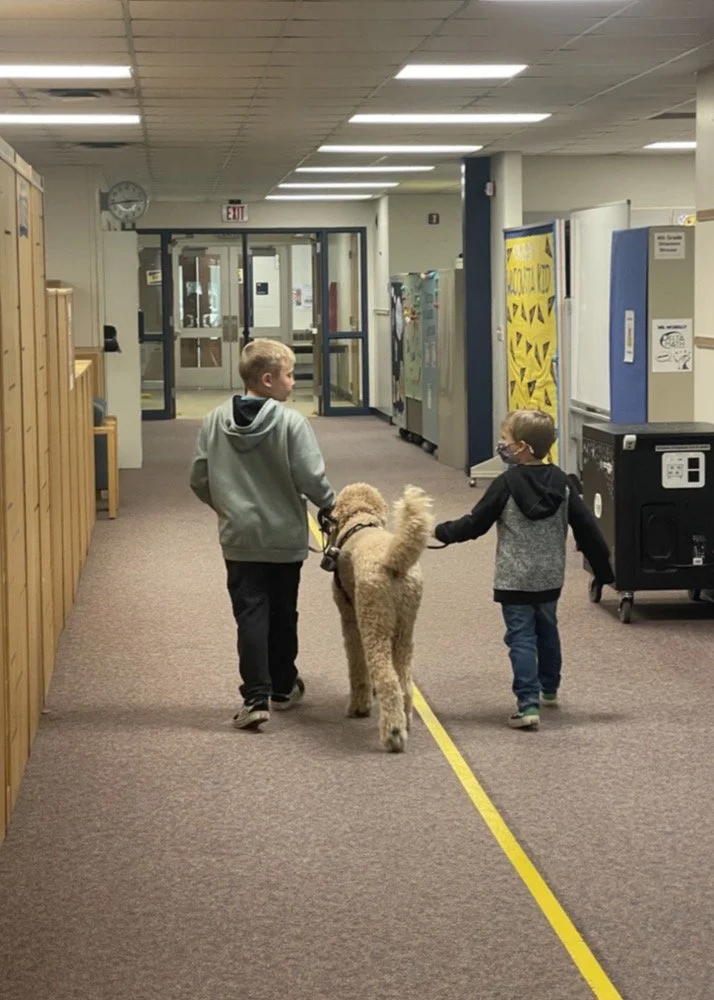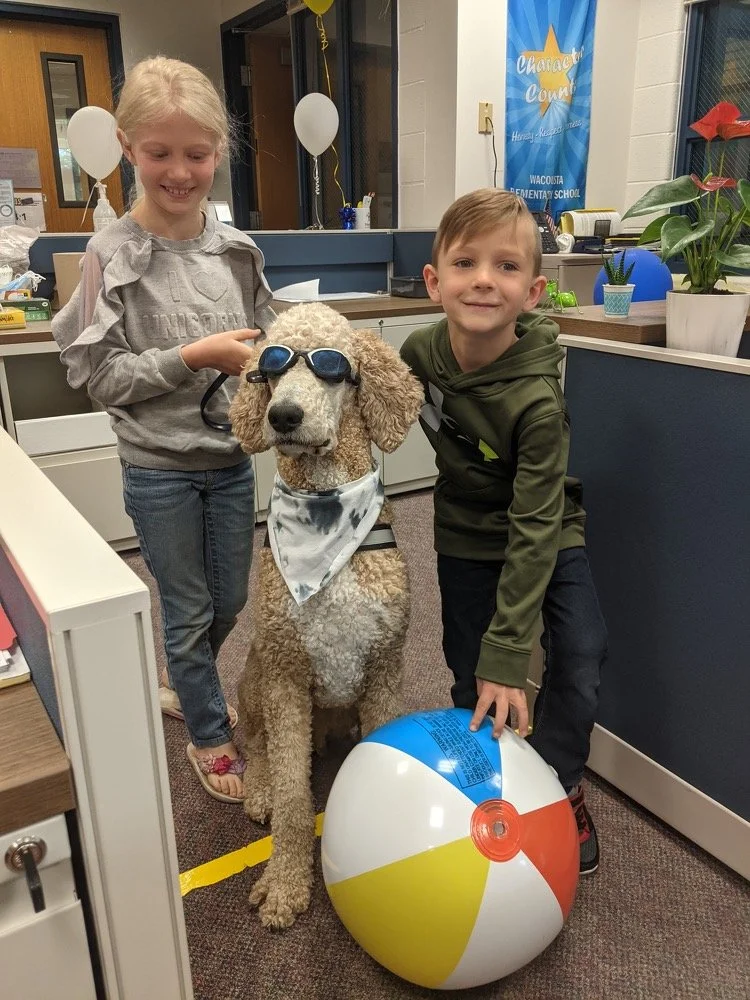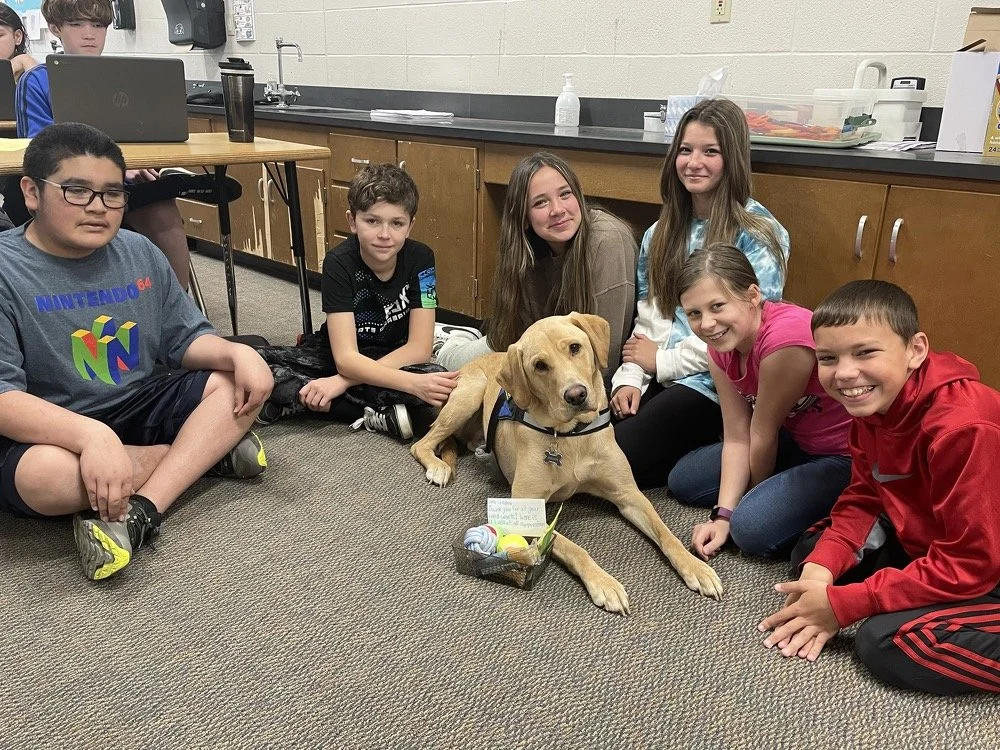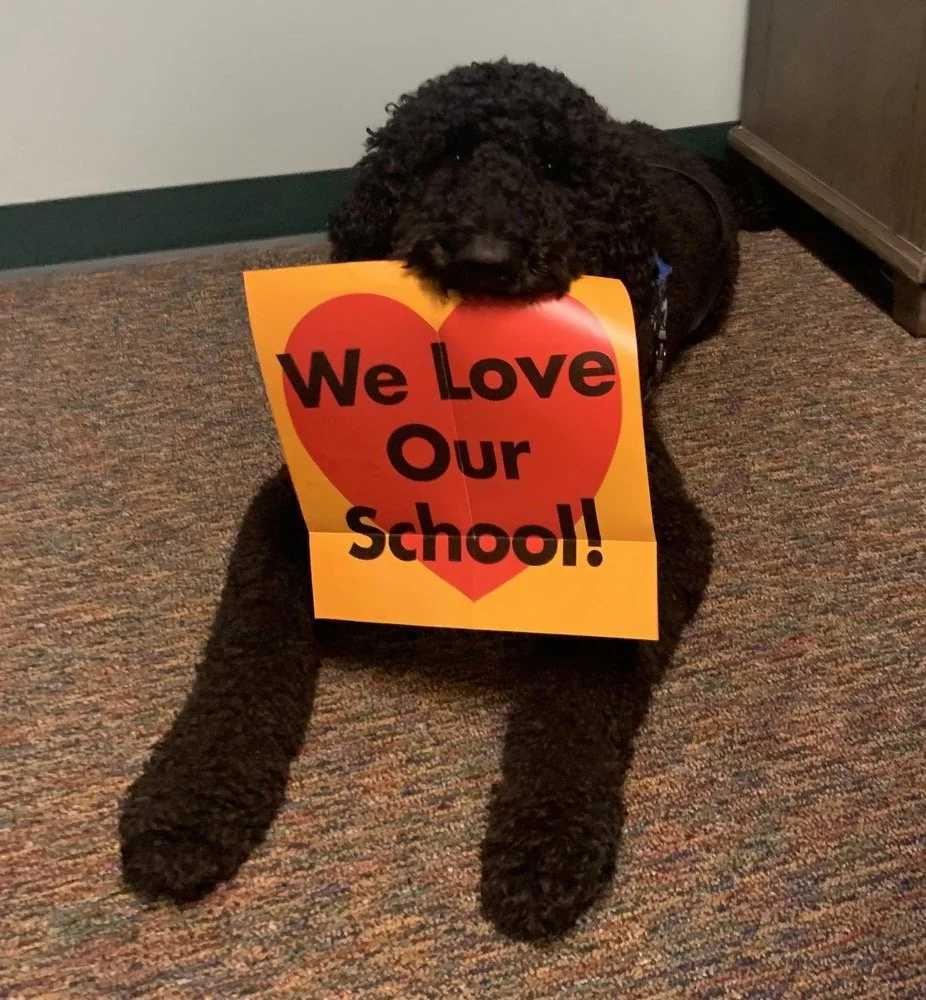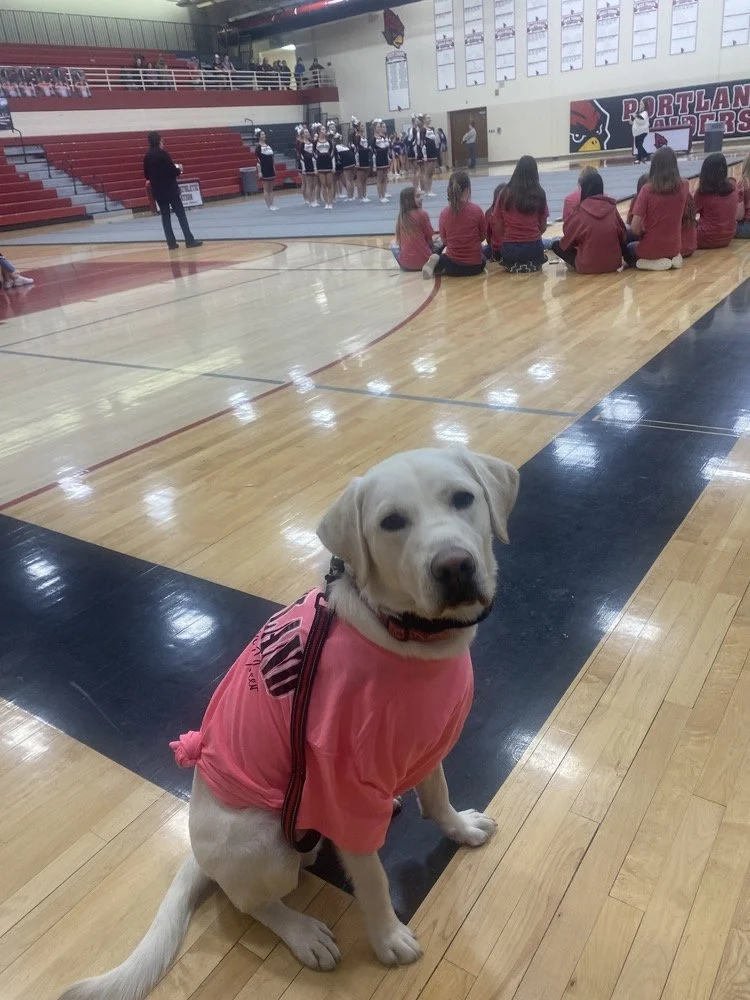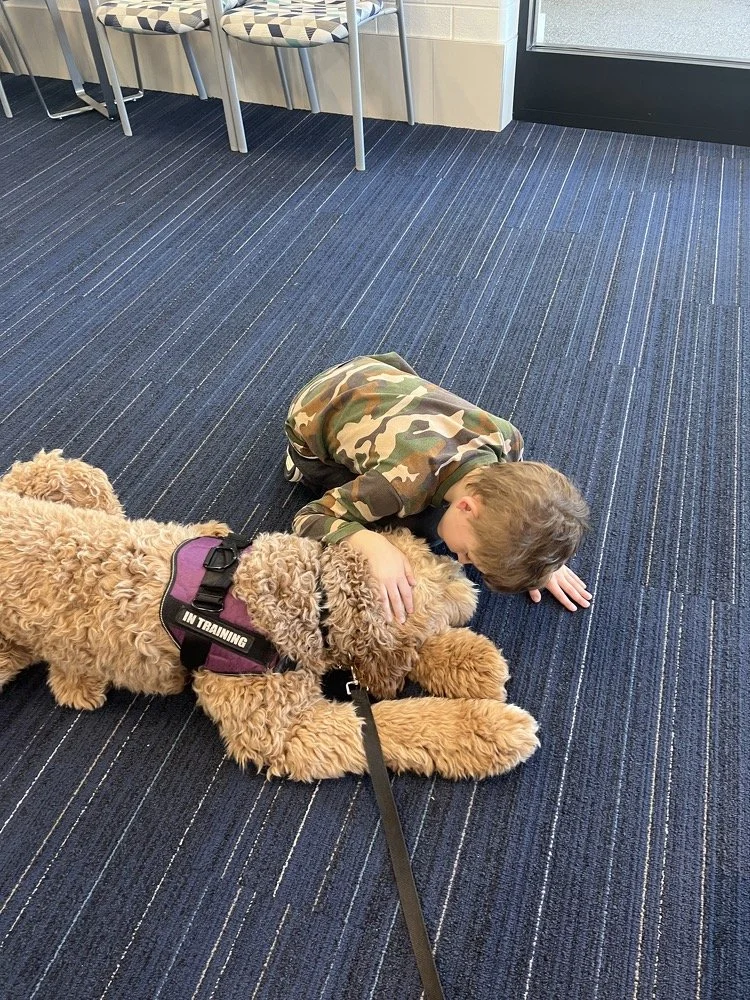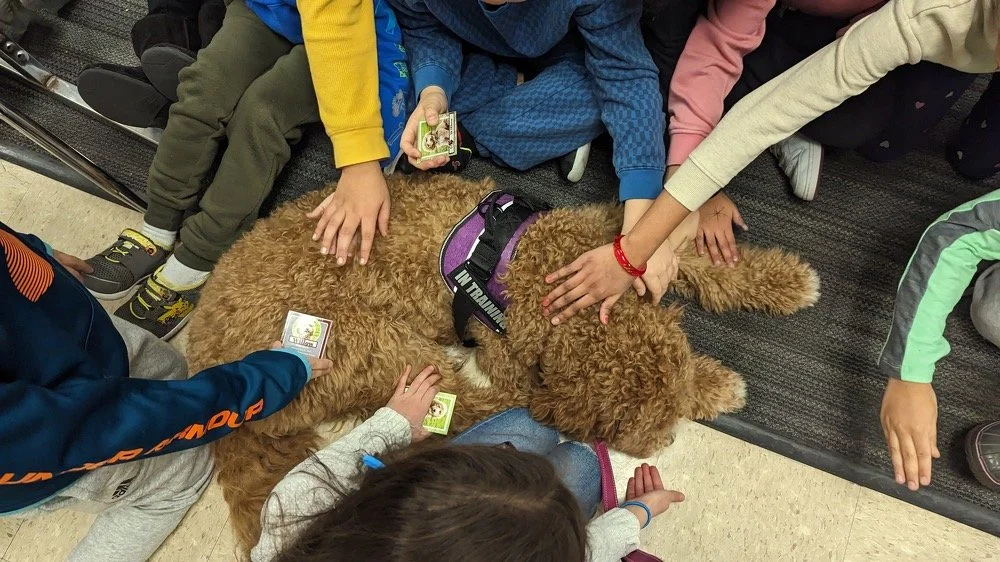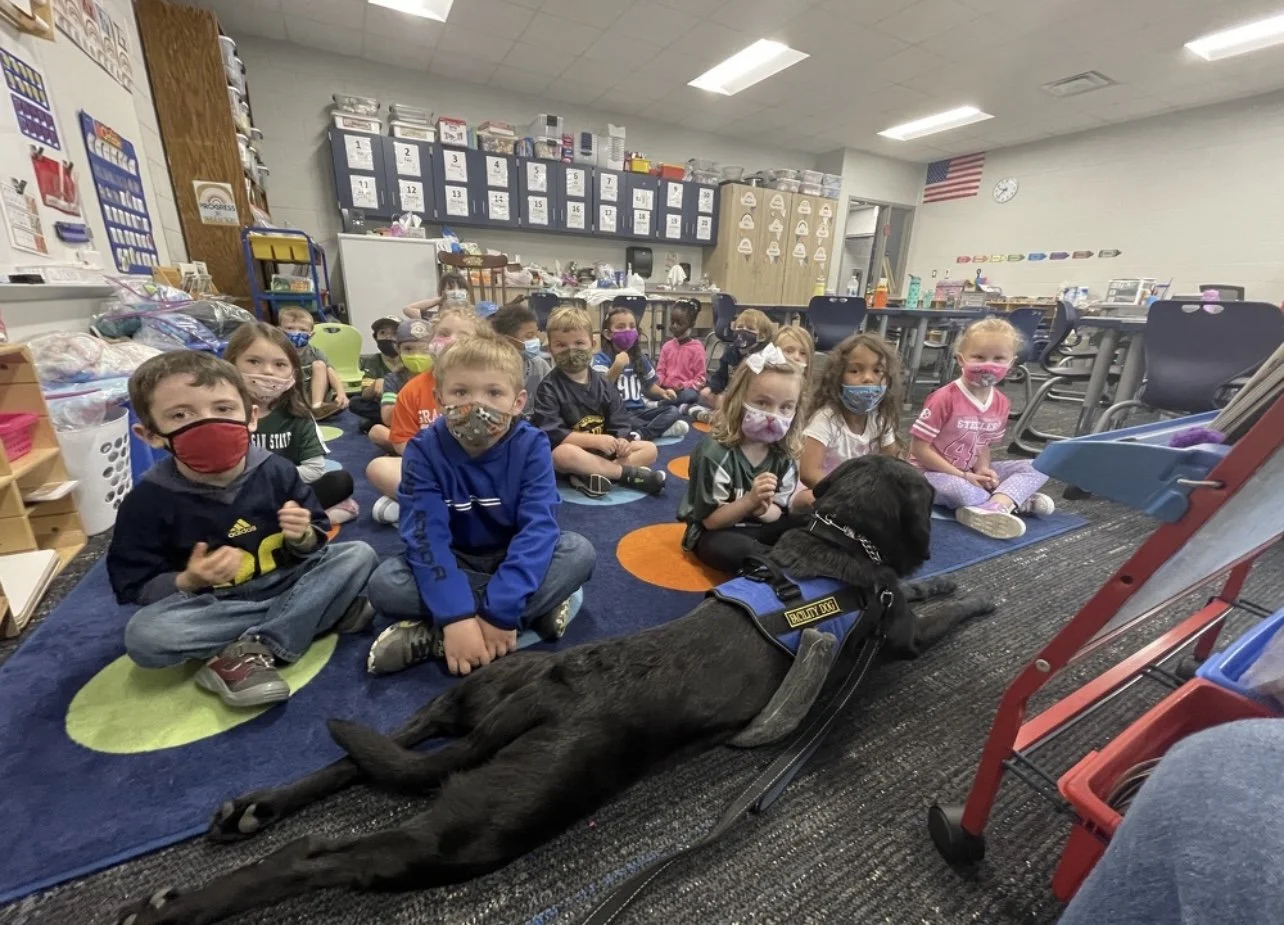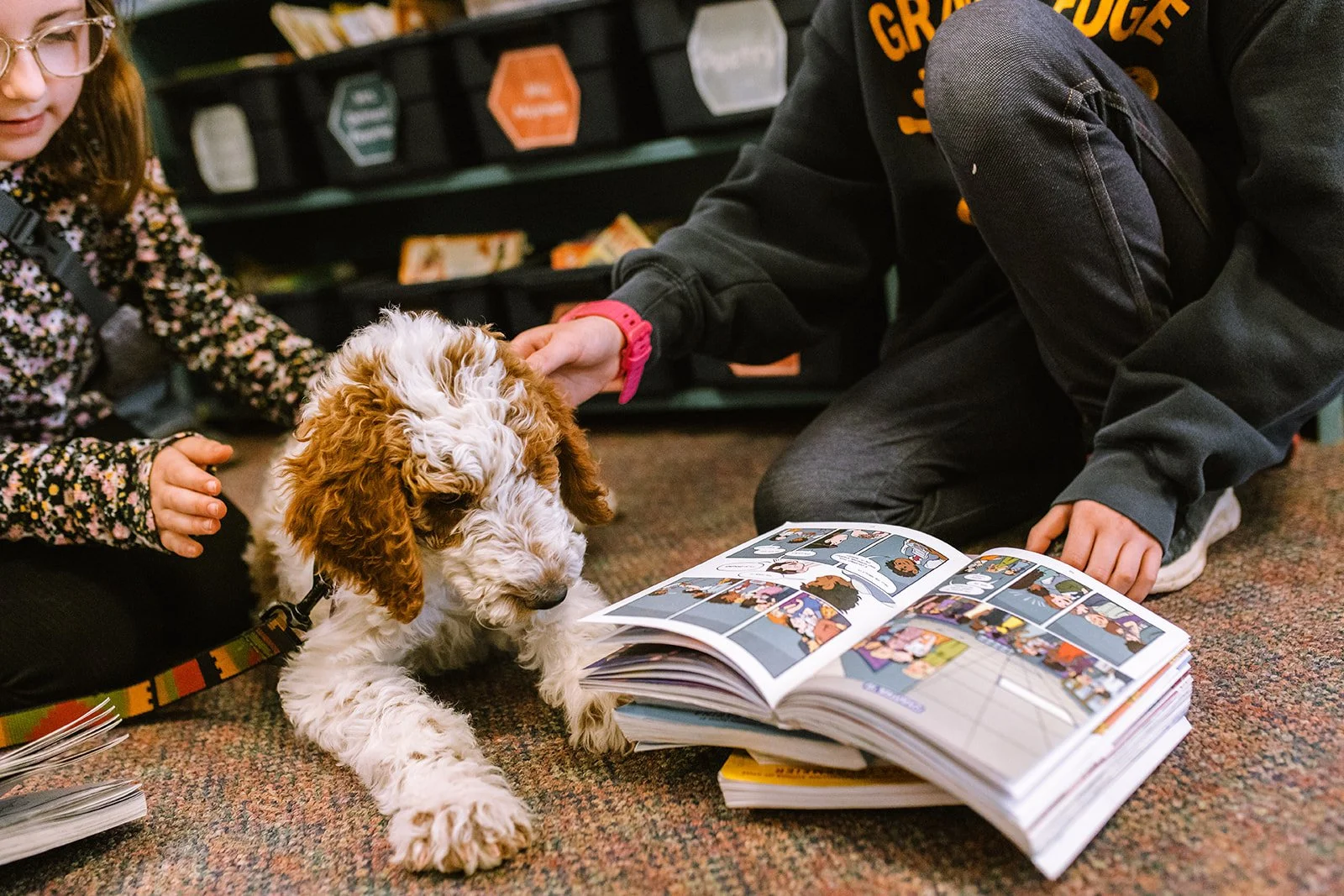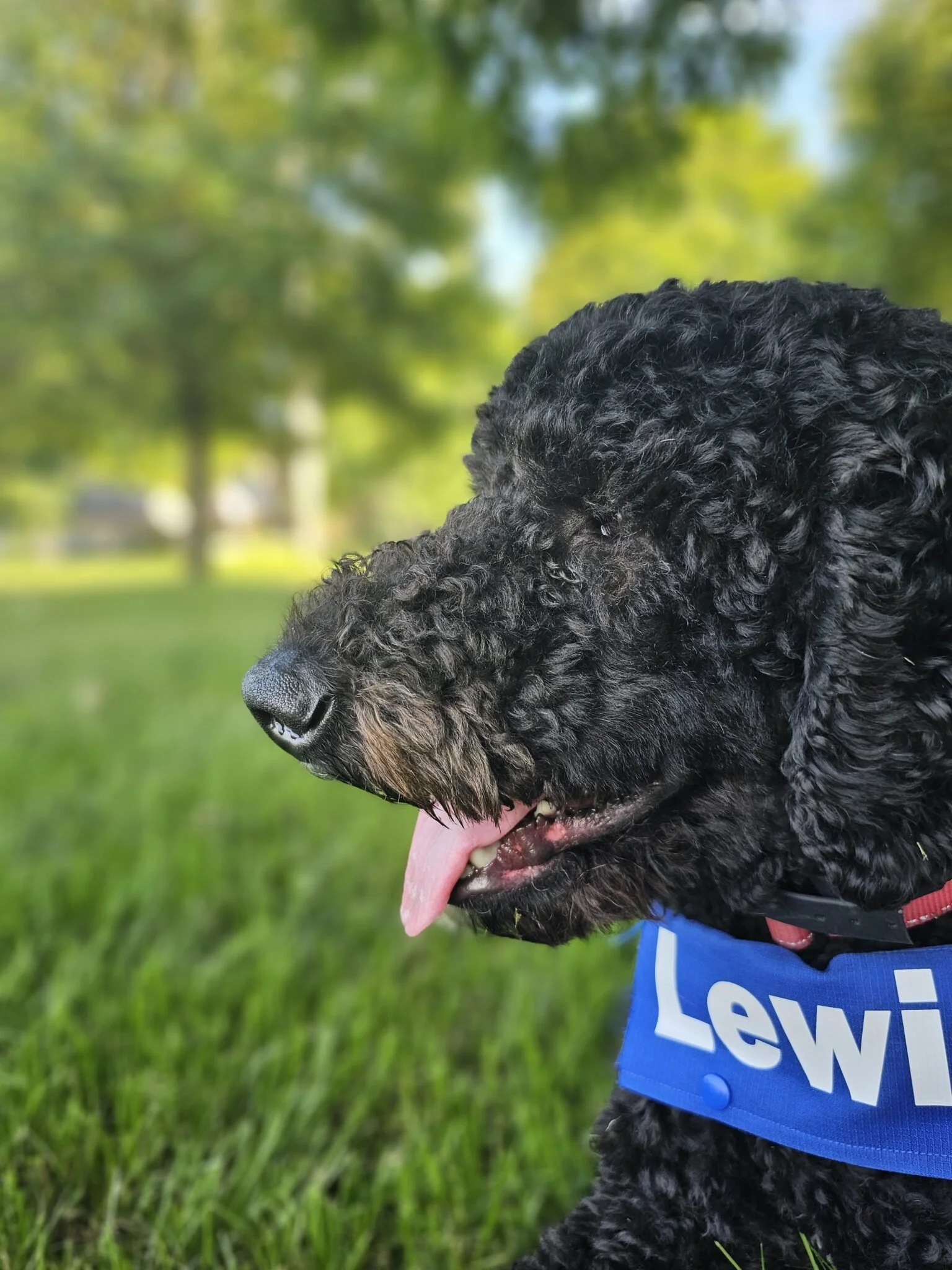Facility Dog Program
Canines for Change is proud to be one of the few organizations in the country that provides highly trained facility dogs for schools, public service departments, and therapeutic settings. These dogs are specially trained to support emotional regulation, academic engagement, social connection, and staff well-being — wherever they’re placed.
Facility dogs are trained to work in professional environments and provide calm, responsive support to the people around them. Depending on the setting, they may help with:
Behavior intervention
Emotional regulation
Victim and trauma support
Community outreach
Classroom engagement and student well-being
Facility dogs are owned by the organization and live with a trained staff handler. Each dog is matched carefully based on the specific needs of the setting they’ll serve.

Interested in helping from the beginning?
You can support our mission by becoming a puppy raiser and help prepare the next generation of service and facility dogs.
Dogs in Schools Program
While Canines for Change places facility dogs in many types of organizations, our Dogs in Schools Program is at the heart of our mission. This initiative is known across Michigan for its success in supporting student wellness, staff morale, and learning environments.
Our trainers — including retired educators and our executive director, a former school psychologist — bring firsthand insight into how dogs can meet students’ academic, emotional, and behavioral needs.
-
Our dogs are currently supporting students, staff, and community members across Michigan in a wide variety of settings. From K–12 classrooms to 911 call centers, here’s where you can find Canines for Change facility dogs in action:
Grand Ledge Public Schools (K–12)
East Lansing Public Schools (K–12)
Portland Public Schools (K–12)
Potterville Public Schools (K–12)
Jackson Northwest Community Schools
Okemos Public Schools (K–12)
Mason, Charlotte, and Muskegon Public Schools
Portland St. Pats Catholic School (K–8)
Ingham Academy
Godwin Heights Public Schools
Eaton County 911 – “Hutch”
Calhoun County 911 – “Hope”
Traverse Bay Children’s Advocacy Center
East Lansing Police Department – “Silas”
MSU College of Veterinary Medicine – “Appa”
Our Savior Lutheran
Grand Haven Christian
Plymouth Canton
Wayne Westland Public Schools
Tecumseh Public Schools
Covenant Schools - Detroit
-
Support students with anxiety, ADHD, or learning differences
Decrease incidents of school violence and behavioral disruptions
Reduce stress and burnout among staff
Greet students daily to foster connection and routine
Improve classroom engagement and social-emotional learning
Increase resiliency and reduce depression
Facility dogs are often signed out to specific classrooms throughout the day — or made available school-wide through behavior teams, counselors, or administrators.
-
Every dog in our program is trained to meet the real, day-to-day needs of the people they serve. Their tasks may include:
Providing deep pressure or lap cuddles
Maintaining a calm “stay” in group settings
Assisting in lessons (rolling dice, retrieving items)
Offering steady, comforting presence to both students and staff
From police stations to classrooms, facility dogs are transforming how people feel supported, connected, and empowered.
Frequently Asked Questions
-
We place facility dogs in a variety of settings, including:
Public schools
Children’s advocacy centers
Police departments
911 agencies
Hospitals, dentists, and counseling centers
-
No. Due to the highly selective nature of our program, we do not train client-owned dogs. All dogs are raised and trained through our program from 8 weeks of age.
-
We primarily work with Goldendoodles, Labrador Retrievers, and Golden Retrievers, with Poodles used occasionally. Each breed is selected for temperament, health, and trainability.
-
Facility dogs cost $12,000, which includes:
All training through certification
Veterinary care
Basic supplies
Spay/neuter and health screenings
Support leading up to placement
Annual recertification is required. Funding assistance may be available — contact our Executive Director for more information.
-
Facility dogs live with a designated handler and accompany them to work each day. They move between staff, students, or clients to provide support — either on a set schedule or as needed.
-
Yes! Each dog is individually matched to its facility based on need and setting. They remain a consistent presence throughout their working life.
-
Facility dogs begin training at 8 weeks old. They’re eligible for certification at one year of age and must complete annual re-certification for continued placement.
“Lewis is much more than just a facility dog. He is a true part of our staff and community here at Mason High School. His presence has transformed the way our school feels both in the halls and within classrooms. For students struggling with anxiety or trauma, Lewis just knows who needs some extra love and he gravitates to them. His presence alone breaks any negative cycle or self-talk. He comforts the lonely and the brokenhearted.
Teachers and students report feeling calmer just knowing he is there. Rowdy classes are more subdued, quiet students reach out to connect with him, and demanding teachers are a touch softer when Lewis is around.
There are so many ways Lewis has positively impacted our school, but I think the biggest is that he reminds us of the importance of connection, empathy, and acceptance. He doesn’t ask for much—just love and kindness in return…and maybe a belly rub or two.”
– Dr. Krista Sherman, Mason High School

